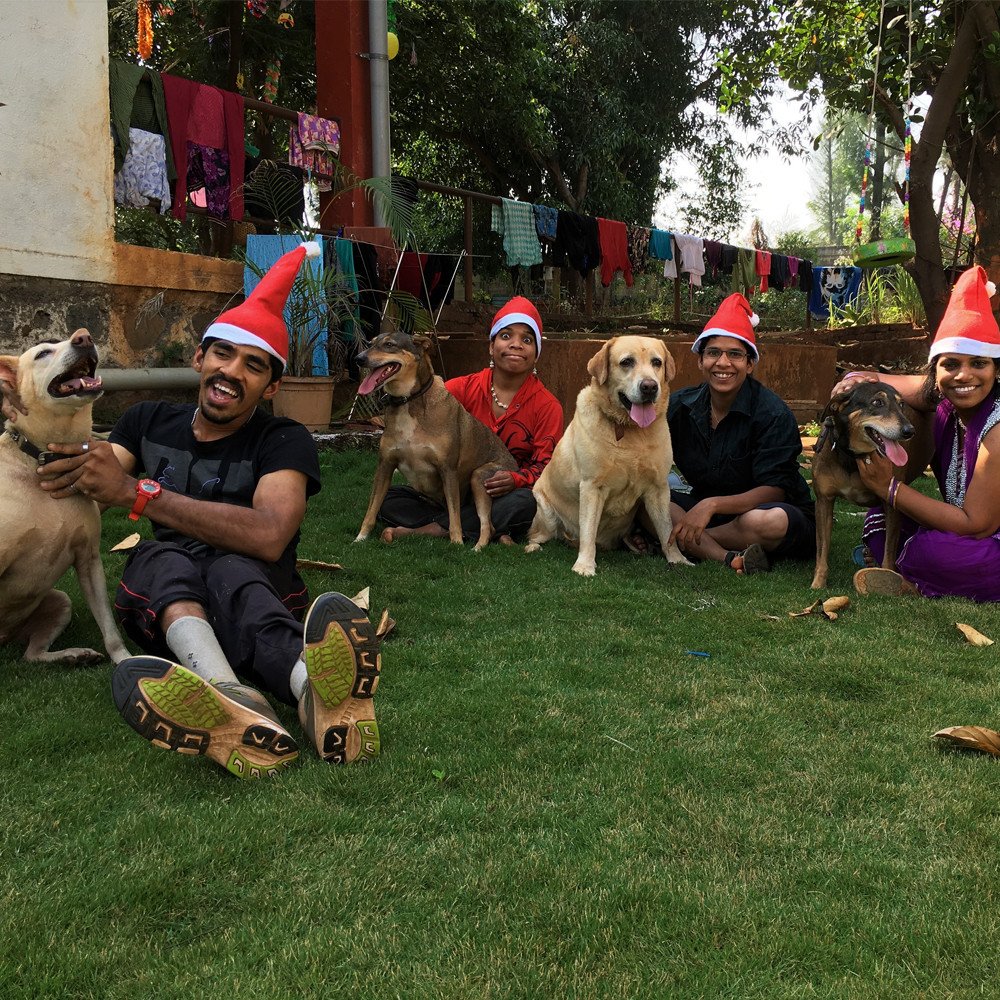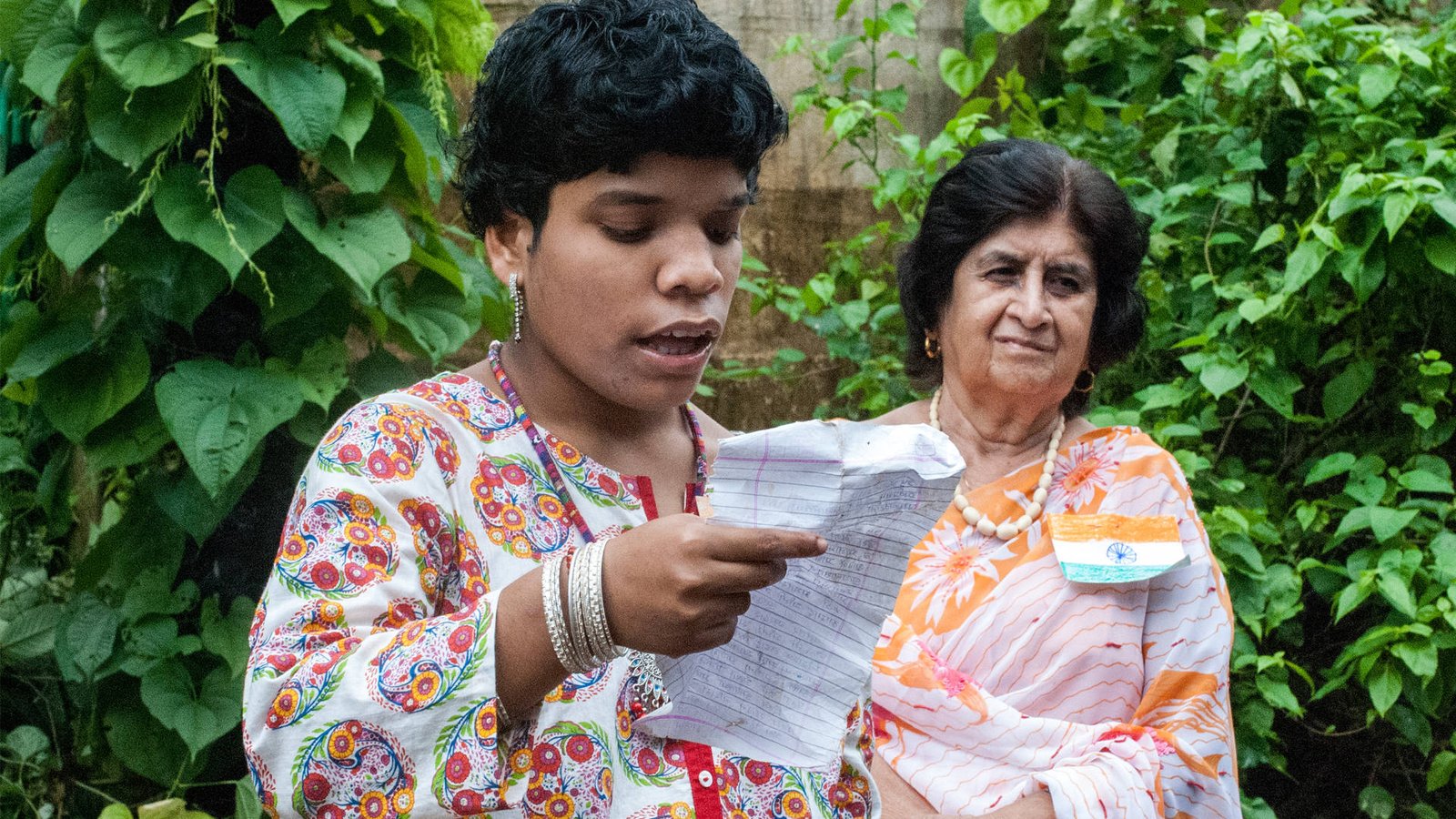
WHAT WE DO
ORGANIC FARMING
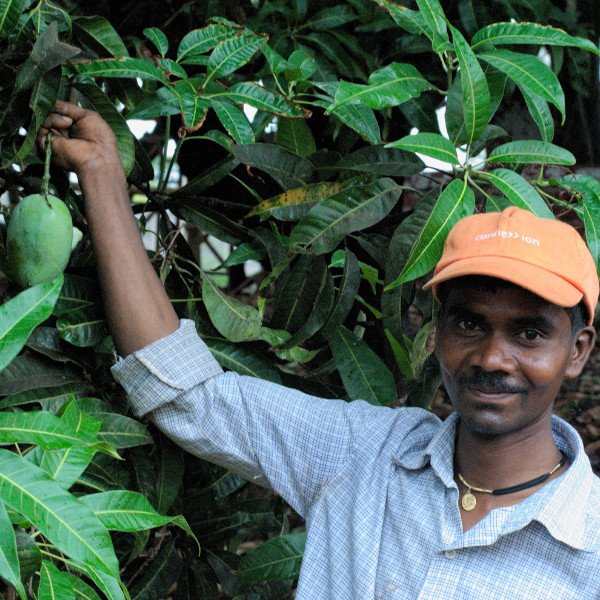
The purpose of organic farming at Umang is three-fold:
- To keep Umang as self-sufficient as possible.
- To provide our differently-abled residents healthy food that is wholly natural and absolutely free of chemicals/pesticides.
- To provide work and therapy for residents who wish to be outdoors in the natural environment.
Work on Umang’s dedicated 1.5 acre organic farm was started under the guidance of Vasant Futane, a veteran organic farming advocate who was a staunch supporter of anti-GMO foods. It is extended to other areas as well where it is possible to grow food making it a total of 2 acres. After a year or more of correcting the land’s topography, implementing techniques to contain soil erosion, and installing drip irrigation we began to reap rewards.
We have installed a bio-gas plant which provides gas for cooking as well as slurry that is used as organic fertiliser for the fields.
Today we grow and harvest rice, alphonso mangoes, guavas, chiku, kokum, papayas, lemongrass, curry leaves, ginger, garlic, tapioca and a variety of vegetables like spinach, fenugreek, okra, beans, peas, tomatoes, and much, much, more.
The priority of all our produce is our residents who love eating what is grown on their land. Any excess is sold in the Umang shop or the Bal Anand counter in Chembur for income. We are also exploring other avenues of sale for our top-quality produce.
We have areas allotted for landscaping where there has been planting of many trees so as to strengthen the Umang ecosystem and beautify the overall experience for our residents and visitors alike.
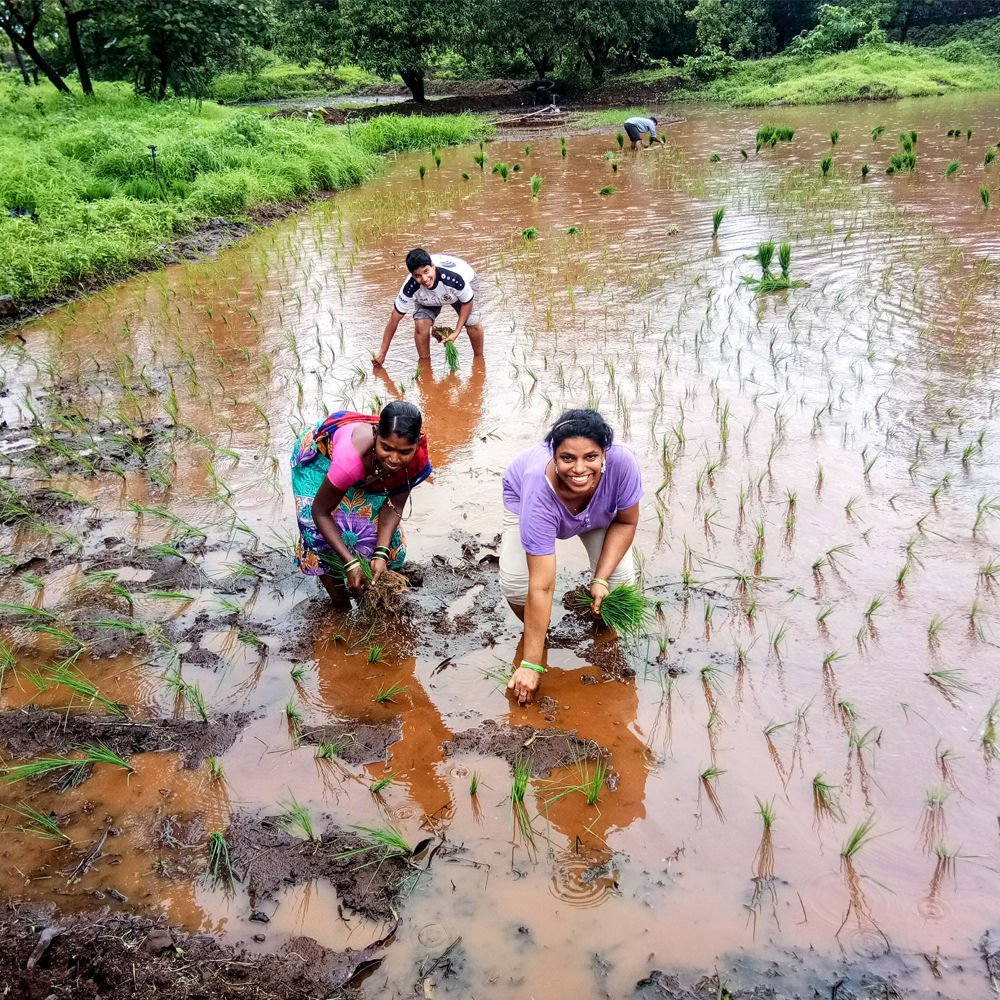
WORKSHOP AND VOCATIONAL TRAINING
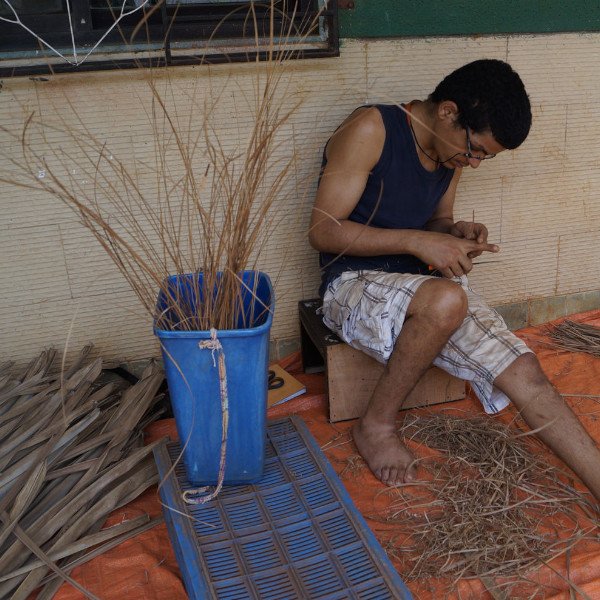
The residents who cannot work in farming or cleaning work in the Vocational Training Centre (VTC) where they are taught various skills by dedicated staff and volunteers. They are taught to make beautiful jewellery, delicately embroidered handkerchiefs, colourful diyas or oil lamps, sturdy brooms, decorative torans or hanging door garlands and so on.
The residents who spend their day in the VTC are our more physically challenged residents and show great commitment to maintaining a high standard of quality in their work.
From time to time, the residents require workshops and role-play exercises on overall health and hygiene, dental care, money management, outside travel and transportation, and fire and safety measures.
Our professional staff and volunteers also host workshops for our caretakers on various topics such as emergency first-aid and better resident management techniques. We are grateful for their professional insights and tips.
STUDENTS AND VOLUNTEERS
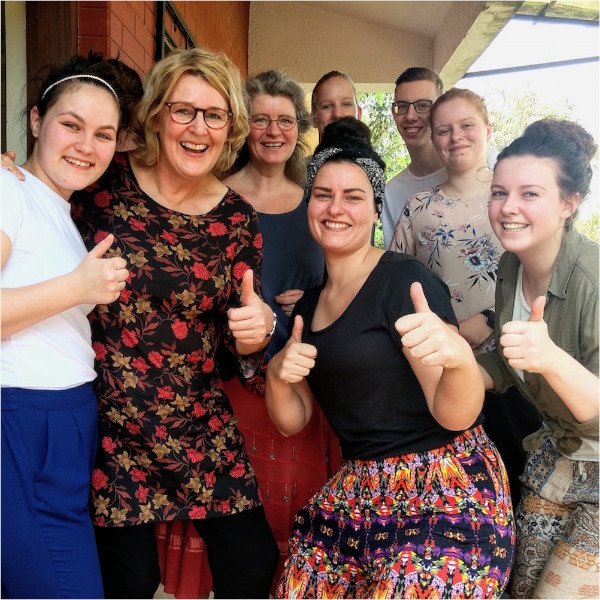
As our project is a first-of-its-kind within India we attract the attention of students and volunteers from around the world.
We have had groups of students from the Nursing and Social Work faculties from Landstede University and Koning Willem I University in the Netherlands, and Tata Institute of Social Science in Mumbai, India.
Volunteers with various professional and educational backgrounds join us from one to six months to give us their expertise and also learn from the Umang model. They live onsite and work in the department best suited to their professional background, be it health and care of residents, agriculture, or vocational training.
To see the testimonials of volunteers, click here.
If you would like to volunteer with us, click here.
COMMUNITY OUTREACH AND DISABILITY ADVOCACY
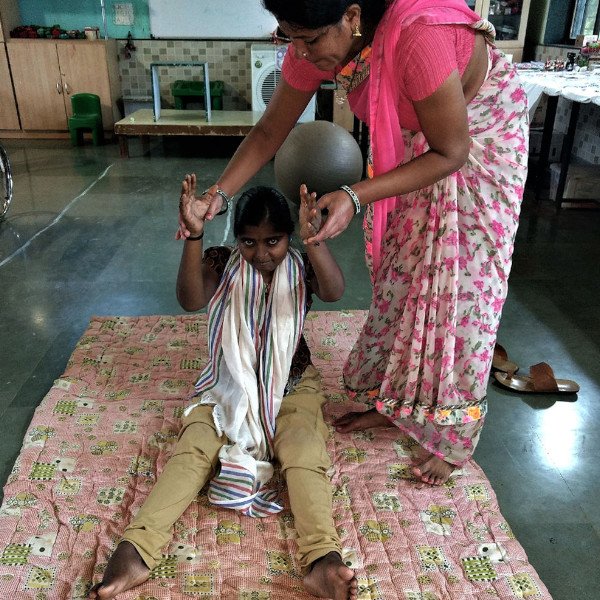
Umang is located in the area of village Vanjarwadi that has small tribal villages. We provide steady employment to many people from these villages as care-taking and agricultural staff towards empowering locals and living upto the vision of an inclusive society. Within villages and small towns there is a lack of knowledge about disabilities and an unwillingness to accept disabilities within family members and communities. Very often the disabled person is shunned or stigmatised, their abilities ignored or disparaged.
We feel it is our duty to spread awareness and advocate for people with disabilities as having as much worth as those without disabilities. It is our vision and mission to focus on the abilities and what a person can do rather than the disability and what the person cannot do.
We feel passionately about bringing our Umang model to the whole of India so that no disabled person is deprived of dignity, self-worth and opportunities to succeed in life.
HOLISTIC HEALTH

- Medical
We built and opened a small medical centre on site referred to as a medical dispensary where we plan to attend to the various medical needs of our differently-abled residents. This helps address the community as well towards our community outreach programme. At this time we do not have a doctor available to consult with us consistently. We travel to hospitals such as the Jupiter Hospital in Thane, the MGM Hospital in Panvel , and the Zen Hospital in Chembur to attend to the orthopaedic, psychological, endocrinological, gastroenterological, gynecological and other needs of the Umang residents. At each of these care centres we receive great service and care at subsidized rates.
- Nutrition
For the most part, Umang’s residents are fed with produce from their own 2 acre organic farming effort. To benefit the physical and mental well-being of the residents packaged and processed food is minimally consumed. We have also incorporated a gluten- and casein-free diet for our residents with autism with positive results, and give special diets if prescribed by the doctor.

THERAPIES
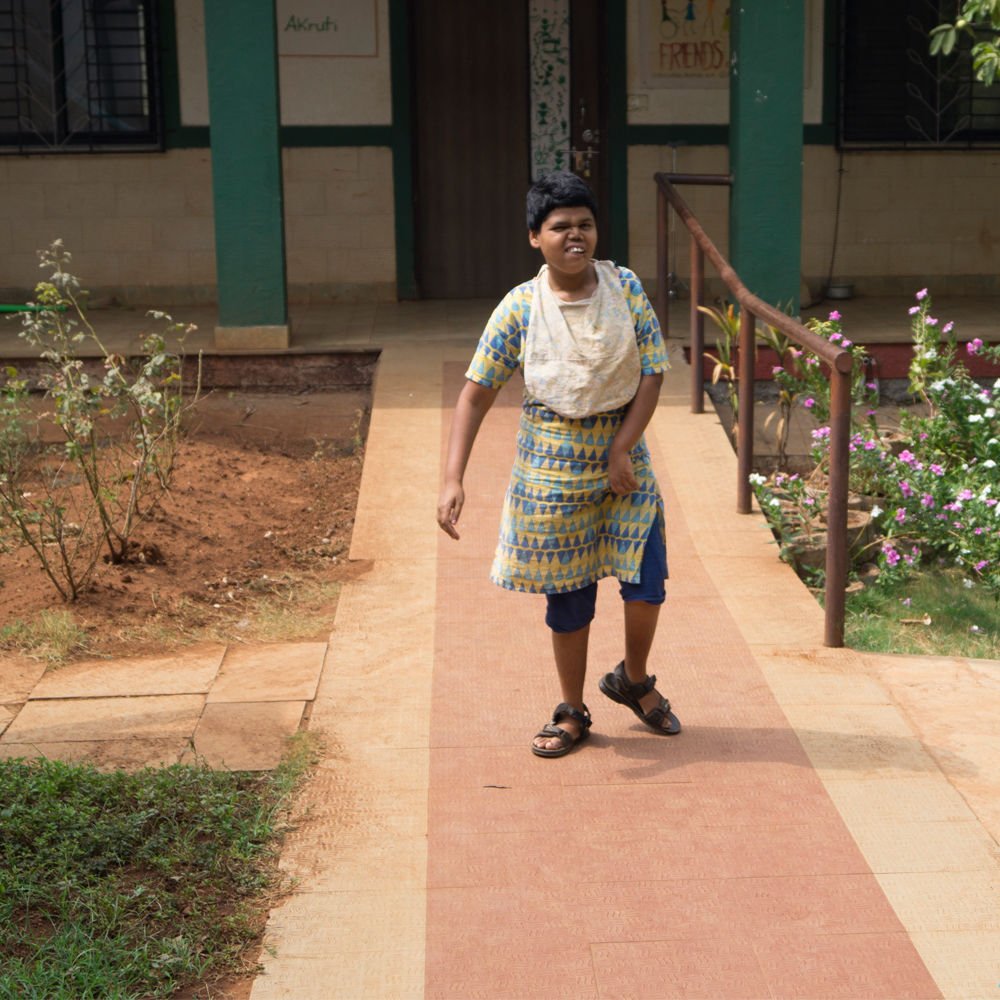
- Walking Therapy
After morning prayers, a warm-up exercise conducted each morning for a period of 30 minutes before the activity of Yoga. Benefits include stretching of the muscles and a healthy dose of Vitamin D from abundant sunshine as and when the seasonal weather permits.
- Yoga Therapy
Conducted each morning after the activity of walking for a period of 30 minutes. The mental and physical benefits of Yoga, deep breathing and meditation are greatly enjoyed by our residents calming their minds and providing greater mobility.
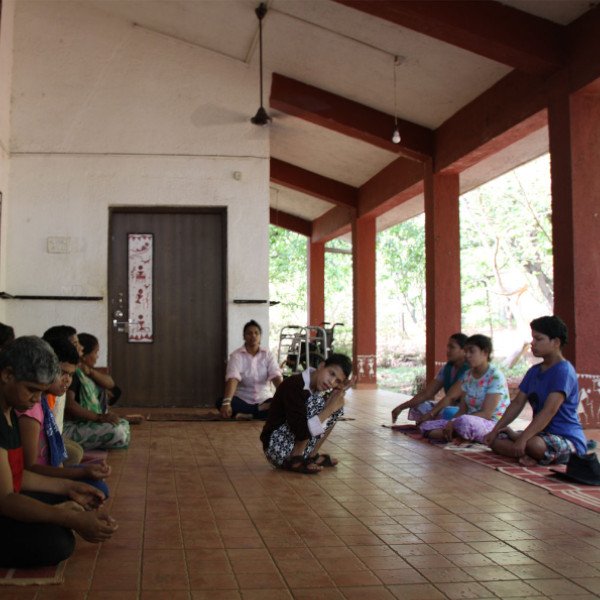
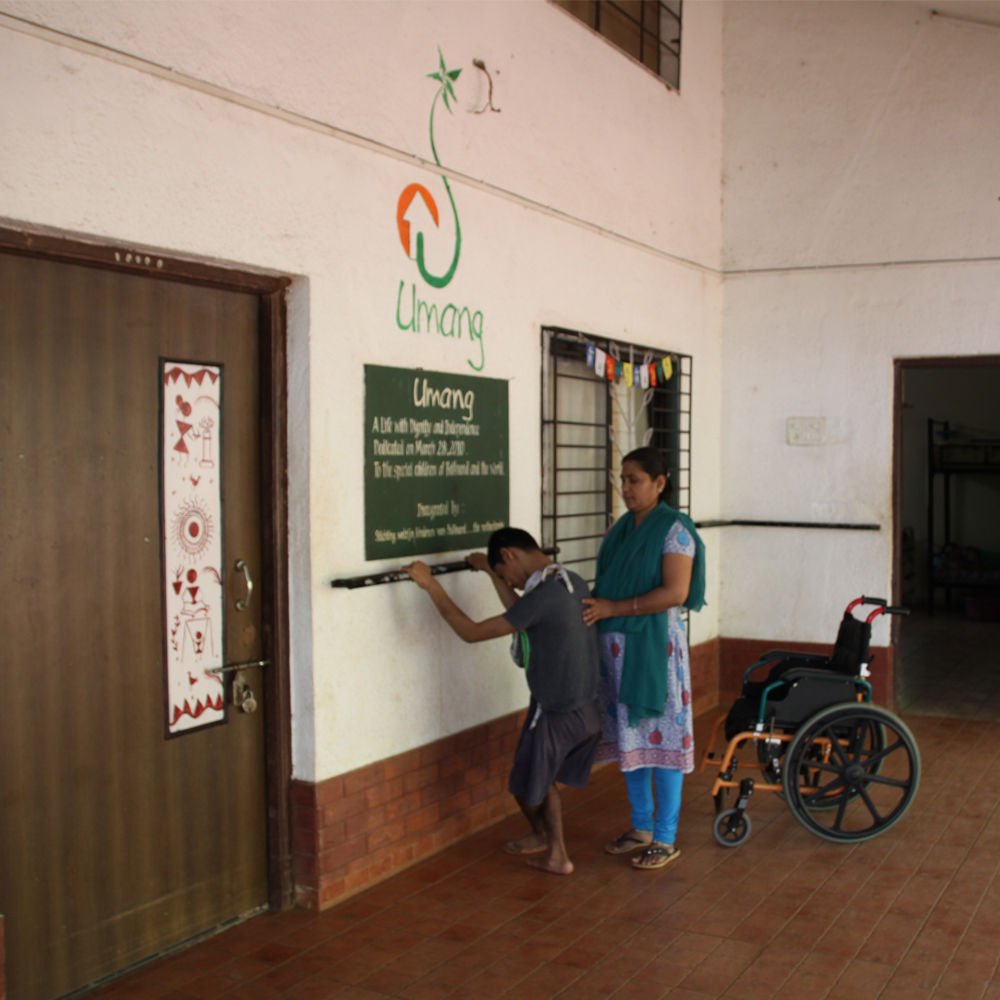
- Physiotherapy
A professional physiotherapist visits on weekends and the exercises and treatments recommended are followed up daily with the aid of Umang support staff.
- Speech Therapy
A speech therapy professional visits twice a month to determine relevant exercises which are then administered daily by the Umang nurse and support staff.
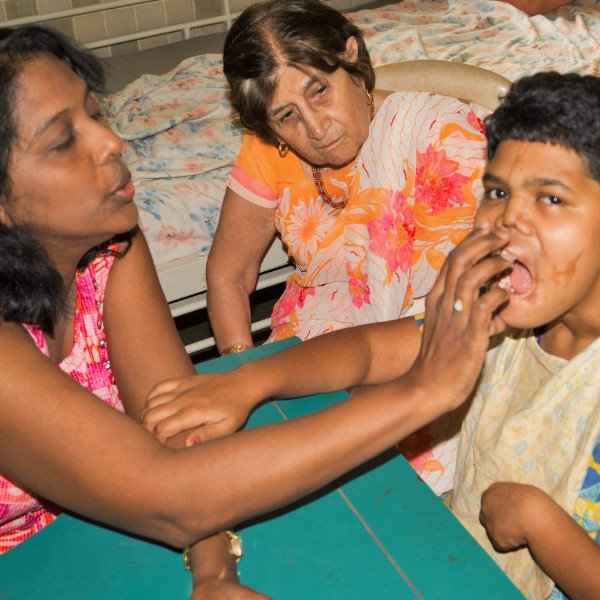
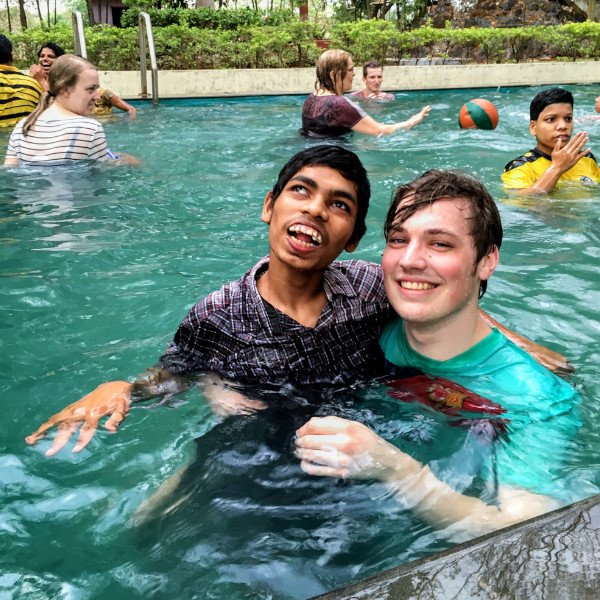
- Water Therapy
We hope to build an Aqua Therapy pool to aid our differently-abled Umang residents with treatment of their aches and pains, fluid movement of their joints, and strengthening and conditioning of their muscles. On very hot summer days, two small paddle pools are blown up and filled with water for the residents to splash around in and cool down.
- Massage Therapy
A recent volunteer at Umang administered massages for the residents with great success resulting in the soothing of body and mind of all participants. Upon witnessing such positive results we have decided to incorporate Massage Therapy in the daily routine of residents with hopes of implementation in the near future.
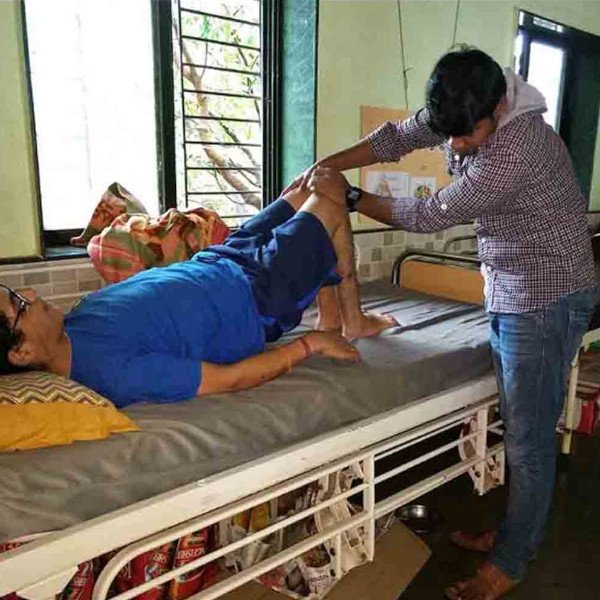
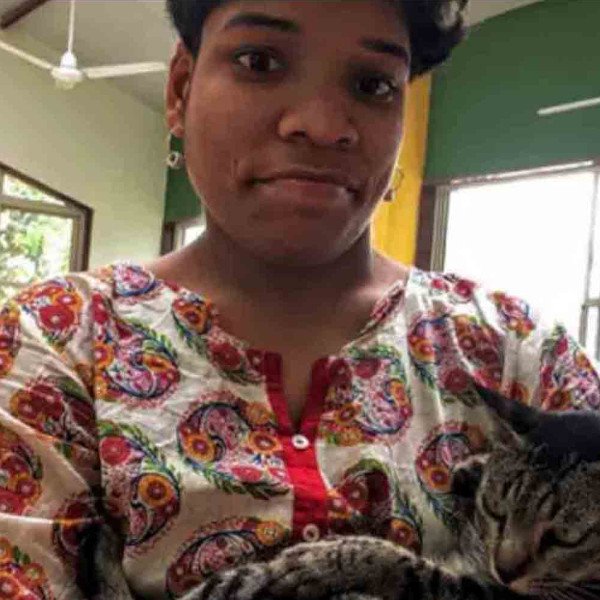
- Snoezelen Room
Based on the recommendation of a volunteer we have built a Snoezelen Room (Dutch creation) in the Vocational Training Centre (VTC) with the goal of providing multisensory stimulation for our residents with severe mental limitations. The room itself is filled with low lighting, a comfortable bed, soothing music, and soft fabrics and cushions.
- Animal Therapy
Our cows, chickens, dogs, rabbits and cats are not only beloved members of the Umang family, but valuable means of therapy for our residents. Touching, stroking, feeding, or hugging animals is known to reduce stress and improve mental wellbeing.
